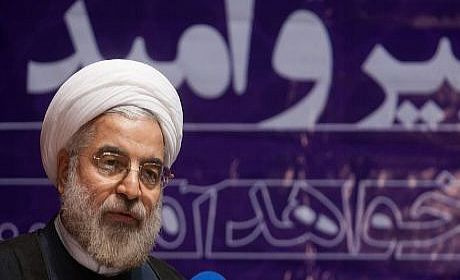Tension with Arabs, Ahmadinejad’s Legacy for Rohani

Rohani is not an unknown personality for the Arabs, particularly for the neighboring countries. As he mentioned in his first press conference, Rohani was the architect of the first ever security agreement between Iran and Saudi Arabia. He also enjoys the support of Mr. Hashemi and Mr. Khatami, who are still very highly regarded among the Arabs. Rohani, by nature, is a diplomat and his experiences following the revolution have mainly been in the field of foreign policy. Contrary to the current president who did not have any foreign policy think-tanks when he came to power, the diplomat Rohani has worked with all the experienced diplomats and technocrats of Iran’s foreign policy and maintained his professional relations with them during his presidency over the Expediency Council’s Center for Strategic Research.
Another one of Rohani’s positive points in foreign policy was the people’s big “no” to the foreign policy of the present government in the presidential election. This issue not only manifested itself in the votes of Rohani’s supporters, but also in the votes of those who were inclined towards his other five rivals. It must be noted that except the one candidate who talked about continuing the current confrontational discourse with the world, the other candidates had serious criticisms against the foreign policy of the present government and talked about the necessity of moderation and interaction with the world. On the other hand, the heads of the neighboring Arab countries were among the first personalities who sent congratulatory messages to Rohani and wished him success.
These are parts of the signs that have led to the formation of early hopes for change in the framework of Iran’s relations with the Arab countries. The fact is that the present situation of Iran-Arab relations and the regional atmosphere is in no way comparable to the period prior to Ahmadinejad’s presidency. Ahmadinejad came to power at a time when the Islamic Republic of Iran, after 16 years of détente in the governments of construction and reform, had been able to establish acceptable relations with its Arab neighbors and dominate the undesirable impacts of Iraq’s imposed war. In 2005, relations between Iran and the Arab countries (except Egypt) had reached their highest diplomatic level. Iran’s status had been promoted not only at the official and governmental level, but also in the Arab public opinion. The Arabs considered Iran’s foreign policy shrewd, prudent, and honorable. But in 2013, Ahmadinejad will hand over the government to the president-elect at a time when relations between Iran and the Arabs are filled with tension and our cooperation with the Arab countries has almost reached zero. A fair look at Ahmadinejad’s foreign policy indicates that although the Arab governments did not welcome his confrontational approach in foreign policy from the very first days, in the first and second years of his presidency, Iran’s image in the Arab public opinion was not bad due to his populist approach. Hezbollah’s victory in the 33-day war in 2006, in particular, increased Iran’s popularity in Arab public opinion. But the events that have taken place during recent years, including the intensification of religious and ethnic disputes in the region, particularly in Iraq, and also the crises in Syria and Bahrain caused the Ahmadinejad government’s final record to be worse in Arab public opinion than his record in official relations with the Arab governments.
Some of Ahmadinejad’s failures in maintaining and continuing good relations with the Arabs can be related to incidents which took place beyond the will of his government; but his inefficient and inexperienced approach led to the loss of many important opportunities during this period. All of the events that happened in the region during Ahmadinejad’s era were not unpleasant; some of these incidents, including the Arab uprisings in 2011, were pleasant events which could have promoted the status of our country. The recent Arab uprisings led to the coming to power of the elites, the majority of whom were Iran’s old friends; but the undesirable situation of the Iranian government’s foreign policy and the decline in our country’s status in Arab public opinion caused these elites to compete with each other in distancing themselves from Iran’s policies after they came to power, instead of valuing their relations with Iran during their hardest times. With all the unpleasant events and the loss of opportunities of the past eight years in the area of foreign policy, the expectation has now been created that Rohani’s capabilities in foreign policy can and should return us to our previous state. There is no doubt that hope must not be lost and there is no key but to return to wisdom and prudence in foreign policy. The discourse of change and moderation in foreign policy enjoys vast support among the elites and citizens of our country. This was one of the most significant messages of the recent election for foreign policy officials.
But at the same time, we must not have unrealistic optimism. The resolution of crises such as those going on in Syria and Bahrain and succeeding in ethnic disputes which have cast a shadow over Iran-Arab relations are very complicated. There is not much room for maneuver in the principles and foundations of the regime’s approach towards these crises. The other point is that the Arabs have always followed the international atmosphere in their relations with our country. They might be leaders in hostility, but they are followers when it comes to establishing friendly relations.
In the area of foreign policy, like in other domains, Rohani’s victory has created hope. But when the excitement of the first days cools down and we reach the time for taking action, it will become clear that overcoming the legacy of Ahmadinejad’s foreign policy is not an easy mission.

